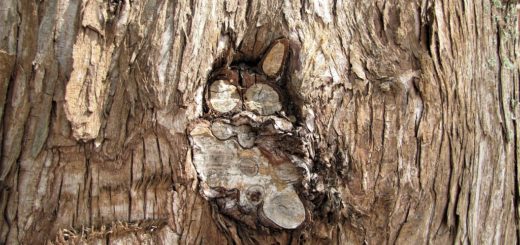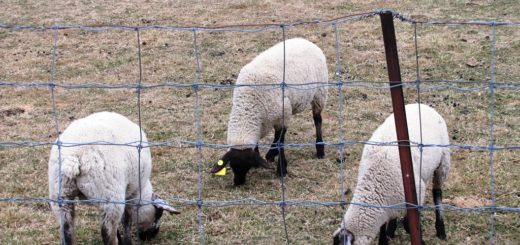Thoughts on Walking in a Storm
Kathy Zhu, a University of Michigan student who was recently crowned Miss World America, has been stripped of her title because she supports Donald Trump, she commented online about the rates of black-on-black gun violence, and — perhaps most serious of all given her home state — she refused to put on a hijab at a Muslim information booth’s “try on a hijab” event, objecting that the hijab is a symbol of the religious oppression of women, not a fashion accessory.
Of course, everyone who has had his eyes open during the past twenty years — the span of Miss Zhu’s life, incidentally — knows that the systemic oppression of women by “religious conservatives,” a flashpoint of revolutionary rhetoric for female Marxists (aka feminists), always evaporates into the ether the moment the world’s most obvious real systemic oppression of women by religious conservatives enters into the discussion.
And so the beauty pageant’s directors — aka meat-market managers — are punishing a young woman’s free expression because she said some things that fell outside the politically correct orthodoxy of the moment, i.e., things that might “trigger” a progressive to run to a safe space in search of his or her Teddy bear.
I think beauty pageants are ridiculous. I think Trump supporters are even more ridiculous than beauty pageants. But I think today’s popular and cavalier use of public shaming and vitriolic personal attacks as means of marginalization, to the point of outright condemnation, ostracism, and shunning for any person, regardless of circumstances or identity, who does not unequivocally embrace the current norms of progressive indoctrination, is emblematic of a civilization in the dying embers stage of its life cycle.
Speaking of Teddy, this is apparently the fiftieth anniversary of the day Teddy Kennedy became yet another in the line of Kennedys to viciously abuse and discard yet another young woman, in this case Mary Jo Kopechne, who was left to die at the bottom of a lake, trapped in the car Teddy planted there, while he raced home to start concocting his alibi in order to save his political career.
Two passing thoughts about this event and the Kennedy legacy:
First, Rose Kennedy, whom everyone is supposed to revere as some kind of saint, was, it seems to me, less a wife and mother than the madam of a brothel, as well as the perennial, default image-sanitizer for her husband’s and sons’ serial sexual exploitation and disposal of women. There is presumably a special place in hell for people who enable and abet such men while pretending innocence by remaining focused on the family’s indefatigable lust for power, which she and her defenders euphemized as “her Catholic faith.” “Saint Rose”? I suspect not.
Secondly, as I typed this observation, I noticed that poor, abandoned Mary Jo’s family name, Kopechne, which has a longstanding and significant place in modern popular culture, was underlined in red by Microsoft’s spell check function. In other words, unlike many other unusual names that Windows has added into its autocorrect dictionary due to their cultural prominence — even nobodies like Pete Buttigieg and Amy Klobuchar have been deemed worthy of inclusion — Kopechne gets no such recognition. An insignificant oversight on its face, perhaps, and yet somehow revealing and all too predictable.
Overnight, tropical storm Danas hit the south coast of Korea, where I live. Early this morning, during a lull in the action, I decided to grab some spare clothes and a wife, put on a disposable plastic rain cape (almost useless), and head out to see how high the nearby manmade river — designed to guide mountain runoff safely through the city — had swelled. It was a little hard to breathe when the wind gusts picked up, but the river was quite dramatically expanded, and racing like rapids. Definitely worth the effort to see it at full throttle. (Sorry, too windy and wet for my trusty camera.)
I then made my way, on foot, to the convenience store across the river, where I bought some simple food to sustain me for a few hours, and set out on the short trek to the campus to do some writing in my office.
There was a taxi idling outside the convenience store, and several more passed me slowly as I walked, obviously hoping for an easy fare; but I preferred, as is my character, to do it in what most people would call “the hard way,” namely alone and unaided, on foot — which for me is in fact the easy way. As I have explained in other contexts, I am a walker.
The walk from home to my office is normally about fifteen minutes, but I am still limping due to my long recovery from a broken foot, and as the rain picked up again, I stopped under the overhang in front of a take-out café for a few minutes to catch my breath, refasten the useless cape, and reorganize the things I was carrying.
I reflected, as I finally arrived on the campus, that walking in a storm, all things being equal, is only disturbing and worrisome to the degree that one’s concerns about arriving at one’s destination in a tidy and unruffled state are paramount in one’s mind. For example, if you were specifically needing to arrive somewhere without drawing attention to your ruffled condition, as might be the case if you were fleeing the scene of an accident where you had just abandoned a woman in a submerged car after driving it into a lake, then you might be quite concerned about the problem of having someone see you all wet, breathless, and on foot, and inquiring about your untidiness and strange choice of transportation. If, on the other hand, you were essentially unconcerned about anyone’s perceptions or expectations, social customs or obligations, then the discomfort of arriving at your destination windblown and rain-soaked would seem a relatively minor inconvenience. Certainly nothing to worry about. So you just keep walking.
It occurs to me that most of what we worry about in life is just that: fear of not satisfying others’ expectations, fear of being “caught” out of sorts or disheveled, fear of meeting with disapproval from our peers, fear of being asked to explain ourselves by those whose judgments somehow seem to matter, because…. Why? Because their judgments are related to our social status, our practical aspirations, our career goals, our societal norms, our public image. In other words, because of all those aspects of our lives that seem important to us precisely when we are least ourselves — when we are still trying to be those things we imagine we are supposed to be for others, the things we imagine others would wish, expect, or demand that we be, for the sake of our social success and sense of belonging.
Walking through a storm, no one is practically successful, living up to any public image, or satisfying any social expectations. When you are trudging in waterlogged shoes against hard winds, fighting to hold a flimsy plastic cape closed tight around your neck, awkwardly trying to carry too many things up a hill, you are simply yourself: an embodied soul struggling alone amid nature’s humbling power, trying to breathe evenly, watching your step, and focusing on your own essential existence, rather than on how you look to anyone else, or what “they” will think.
Today, people who hold views even mildly opposed to the progressive totalitarian orthodoxy of the moment are being publicly shamed and shut out of normal life by the self-deputized thought police mob, often for beliefs and statements that were commonplace a few years ago, and almost universal a few decades before that. In the names of “inclusion” and “sensitivity,” nature is being forcibly eradicated from human life, and death cults exalted as the true meaning of “culture.”
Meanwhile, people who resist the call to shout illiterate vulgarities and spew violent hatred, who reject the crowd’s equation of gossip with political analysis, who refuse to see blind tribalism as a political virtue, and who are tired of pretending that “our” power-hungry hypocrites are better than “their” power-hungry hypocrites — or that being periodically permitted to choose between power-hungry hypocrites counts as representative democracy — are formally excluded from all public and most private discussions, which are controlled and orchestrated by the tribal factions with their mindless parroting of competing tyrannical talking points.
In other words, the person who elects to keep his mind his own is despised for it by all sides, and mocked out of the conversation for his embarrassing lack of tribal identity, i.e., he is attacked on the implied premise of all late-modern thinking, namely that independent thought, the unsold mind, is a political vice, because it makes life less tidy and categorizable for the competing hypocrites and their parrots.
A tropical storm has swept up through the heart of civilized man, packing high-force winds of mass socialization and senseless materialism swirling in every direction. A spirit-drenching rain of cowardice mercilessly dissolves the philosophical moderation and intellectual inquisitiveness that once defined the peaks of a civilization which, in its exhaustion, has succumbed to the most politically destructive temptation of man: the temptation to jump the first available vehicle to anywhere safe and normal, rather than accept the challenge of the storm, dismiss all thoughts of others’ perceptions, and just keep limping along, slowly but inexorably, with controlled breathing and careful steps, toward the only place that matters, the realm of the free soul.



